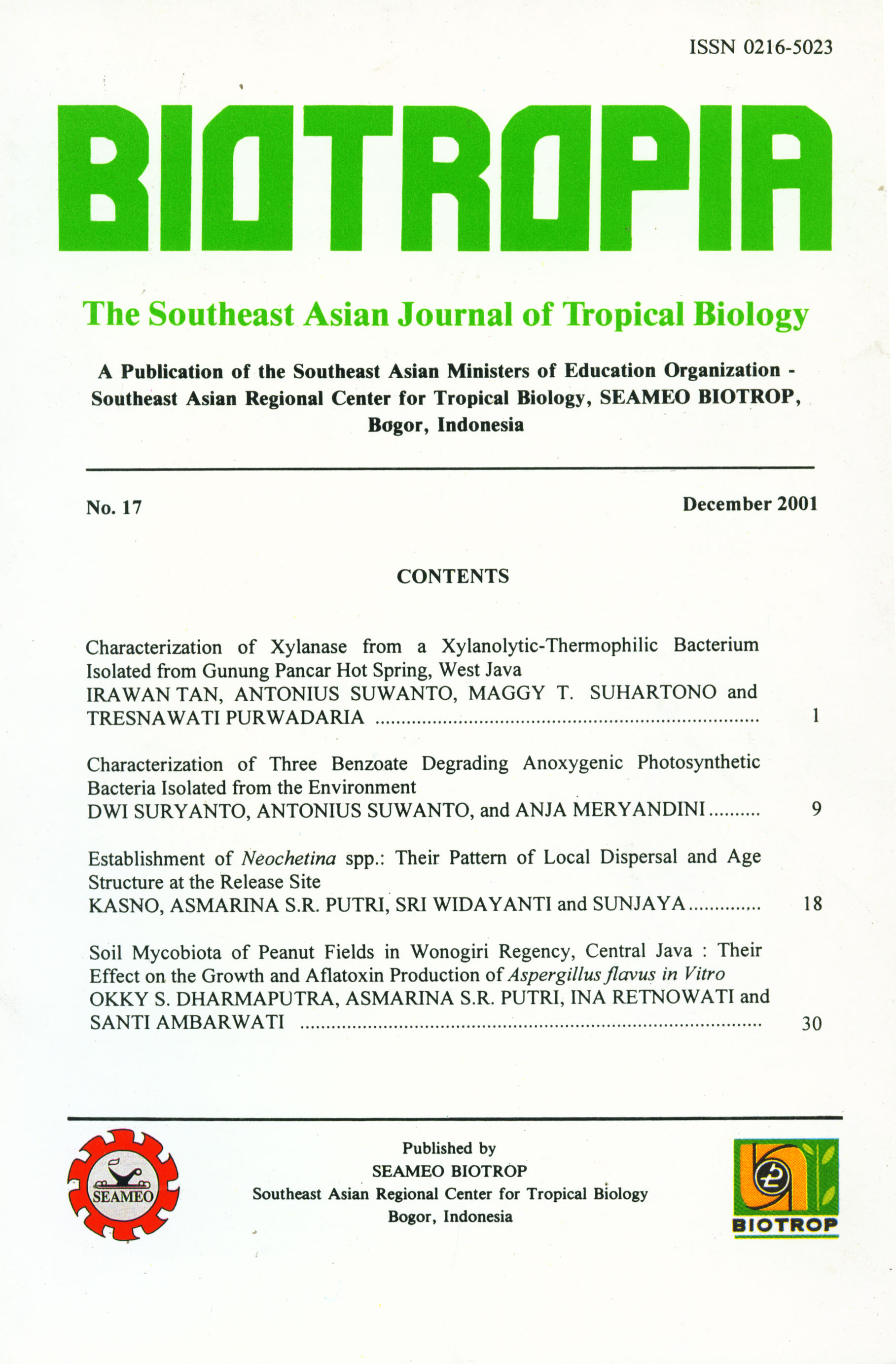
SEAMEO BIOTROP
Southeast Asian Ministers of Education Organization
923
views
Tags
ESTABLISHMENT OF NEOCHETINA SPP.: THEIR PATTERN OF LOCAL DISPERSAL AND AGE STRUCTURE AT THE RELEASE SITE
24 May 2019 - 09:35 am (7 year ago)
Content Language : English
Content Language : English

Category :
Applied Science
Study on the distribution pattern and age structure ofNeochetina spp. (Coleoptera: Curculionidae) at
the release site was conducted to know a) the distribution pattern of the weevil, b) its establishment status,
c) its survival rate in the field, and d) relationship between the attack of the weevil and the fungus, Altemaria
eichhorniae Nag Rag & Ponappa (Hyphomycetes), in causing damage to water hyacinth. This study was
conducted at Situ Bagendit lake, Garut, West Java.
A release and recapture method was employed to study the mode and rate of dispersal of the
weevils under field conditions. Regular sample collection at two-month interval was done to evaluate the
pattern of distribution and to assess the age structure under field condition. Another two months regular
observation was done to assess damage severity due to adult weevils and the fungus, A. eichhorniae, on
water hyacinth.
Results showed, that the weevils seem to disperse actively to all directions following the presence of
water hyacinth. The data also showed that the dispersal rate of the weevils was about a few meters a week.
Under field conditions at Situ Bagendit lake, the weevils were about evenly distributed throughout water
hyacinth mass. The density of the weevils fluctuated from time to time, but the trend slightly increased.
The survival rate of the weevils at Situ Bagendit lake was estimated not more than 5%. It was suspected that
various limiting factors such as various predators have caused the low population increase under field
conditions. The population increase through time confirmed that the weevils have established at Situ Bagendit
lake. Field data showed that there were no interaction between the damage severity of the weed caused by both
weevils and the fungus.
the release site was conducted to know a) the distribution pattern of the weevil, b) its establishment status,
c) its survival rate in the field, and d) relationship between the attack of the weevil and the fungus, Altemaria
eichhorniae Nag Rag & Ponappa (Hyphomycetes), in causing damage to water hyacinth. This study was
conducted at Situ Bagendit lake, Garut, West Java.
A release and recapture method was employed to study the mode and rate of dispersal of the
weevils under field conditions. Regular sample collection at two-month interval was done to evaluate the
pattern of distribution and to assess the age structure under field condition. Another two months regular
observation was done to assess damage severity due to adult weevils and the fungus, A. eichhorniae, on
water hyacinth.
Results showed, that the weevils seem to disperse actively to all directions following the presence of
water hyacinth. The data also showed that the dispersal rate of the weevils was about a few meters a week.
Under field conditions at Situ Bagendit lake, the weevils were about evenly distributed throughout water
hyacinth mass. The density of the weevils fluctuated from time to time, but the trend slightly increased.
The survival rate of the weevils at Situ Bagendit lake was estimated not more than 5%. It was suspected that
various limiting factors such as various predators have caused the low population increase under field
conditions. The population increase through time confirmed that the weevils have established at Situ Bagendit
lake. Field data showed that there were no interaction between the damage severity of the weed caused by both
weevils and the fungus.
Link

This work is licensed under a Creative Commons Attribution-NonCommercial-NoDerivatives 4.0 International License.
